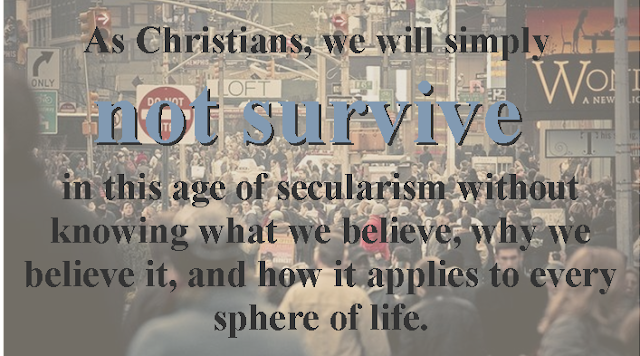
The most important thing about you is your worldview.
After all, a person’s worldview is just that—the way they view the world, their deepest beliefs and assumptions about reality from which their actions spring. It cuts to the core of our identities. But while it makes sense on paper, a person’s actual worldview can be trickier to grasp in real life. Especially if the concept of worldview is new to you, the idea of identifying someone’s view of life from what may seem like an infinite variety of options is daunting, to say the least. But don’t throw your laptop across the room in frustration—there is hope!
Worldview can be crystallized into two core beliefs, what Truthquest History author Michelle Miller terms the“Big 2 Beliefs”.

Belief Number One: What you believe about God. Is he an impersonal life force or a personal individual? Is he the creator? Does he exist at all?
Belief number two: What you believe about humans. Are we created in God’s image, or did we evolve by chance? What is our true purpose? Do we have a purpose?
Our answers to these two statements are related. If we believe that God is the creator, we must accept that humans are his creation. If instead we believe that there is no God and that the universe was formed through random chance, then human life is also random. What we believe about about God and people determines the choices we make and how we treat ourselves and others. A person’s “Big 2 Beliefs” can compel them to oppose injustice or allow them to justify mass murder. The interplay between these foundational beliefs produces our beliefs about life, truth, morality, and everything else.
Looking at the world around us and back through history, we can see “Big 2 Beliefs” at work.
Even if a person isn’t aware of their true worldview, their actions make it clear - remember, “actions speak louder than words.
We can examine how a person treats humans and what, if anything, they believe to be God. Not every Founding Father subscribed to traditional Christianity, but at heart they all shared similar worldviews, appealing to a higher authority than man from whom humans receive their rights. Because they believed that a reasoning Creator designed the world to operate according to certain laws, they were able to hold their government accountable when it violated those laws. Less than two hundred years later, Adolph Hitler insisted that his cause was supported by God. However, he gave himself the power to dictate a whole new version of right and wrong and demanded absolute obedience from his followers, demonstrating who he really thought was in control of the universe—himself.
If we take a look at our own lives, we can learn some important facts about ourselves by applying the concept of “Big 2 Beliefs.” Sometimes I know something intellectually, but when it really comes down to it, my actions don’t reflect what I say I believe. Then I have to stop and consider what my worldview actually is. I need to make sure that I’m acting according to an accurate view of reality rather than just reacting to the latest commercial I saw.
So what are your “Big 2 Beliefs”? When you look in the mirror, what do you see? Take a few minutes to reflect on who God is and who humans are. It’s worth thinking about!








